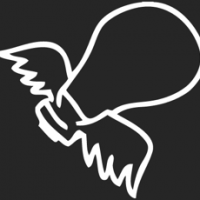What is the Unreasonable Institute? Click here for an intro via our editor Waylon Lewis and Unreasonable co-founder Daniel Epstein.
It all began with a girl who wanted to be a boy.
Unlike other girls in 1990s Taliban-controlled Afghanistan, Azaada Khan walked with her head uncovered and her gait fearless. She changed her name to that of a boy’s; her attire and haircut followed, all so she would be allowed to attend school in a country where girls could be punished by law for doing so.
Arti Pandey, Program Director of Barakat, now our partner NGO, met Azaada in the summer of 2008. Back at the MIT’s Sloan School of Business, Arti related Azaada’s story to a small audience. I sat in that audience, captivated by the struggles of a girl who had lost her identity by following her passion for education, drawing contrasts between her life and mine. What had I done to deserve a life where I had the opportunity to pursue two degrees at one of the top schools in the US? Yes, I worked hard through school, but so too did Azaada.
Four months later, I was in Attock, northern Pakistan, where Barakat built the first three schools for the city’s nearly 30,000 Afghan refugees. There is no dearth of inspiring stories in this close-knit community. But what I could not forget after that visit was what I saw inside the homes—young girls laboring at carpet looms for up to 14 hours every single day to support their families. There was no time for anything else—no play, no socializing but most importantly, no school. These girls were stuck in a cycle—they were illiterate because they were poor, and they would stay poor because they were illiterate.
In the fall of 2009, after brainstorming with Barakat’s local staff, and meetings with the parents of the girls we were trying to help, I kicked off a pilot at the Ersari School with $7000 I had raised while in the US. We called it BLISS, an acronym for Business and Life Skills School.
BLISS offers an innovative solution to this work-school dilemma that millions of young girls across the developing world are caught in. It provides financial incentives for girls to go to school, immediately making it more rewarding than work, while simultaneously providing skills that increase their earning potential in the long term.
BLISS participants help produce high-fashion trendy handbags to stay in school. The handbags are created as part of their educational and skills program; profits from the sales are used to compensate existing students, recruit new students and create sustainable income for the community. The more handbags produced and sold, the more students BLISS can educate and train, thus creating a “virtuous cycle.”
The girls and their mothers are now also participating in other parts of our value chain, e.g. design and marketing. Later this year, we are launching a business and financial literacy curriculum to provide the tools and training for participants to launch and sustain their own handcrafts micro-enterprises.
There is no simple or obvious future for millions of young girls without BLISS—a culturally acceptable solution to a highly intractable problem. BLISS provides a way for each community in which it operates to participate in improving its self-sufficiency, a consequence that extends well beyond a classroom full of young girls. It is a model that can and will be applied cross-culturally throughout many developing countries.
One year in, BLISS is benefitting girls like Gul Pikai, who has been working at a carpet loom for 14 hours a day since she was seven years old. She is now 14. With BLISS, she is getting the chance none of her siblings got—that of being allowed to attend school. “I want to become a doctor”, she says, her eyes sparkling with the promise of what an education can make possible for her. With a sick mother, and a handicapped sister, it’s no surprise that she has that dream. With BLISS, we aspire to groom girls like Gul Pikai into confident, healthy, socially responsible and financially stable citizens, who can raise the next generation to be the same.
BLISS’ vision is that of no girl left behind, of every young girl able to define the course of her own life, and lift herself, her family, her community and even her nation out of poverty.
BLISS is raising $25K by Dec 31st to scale operations and impact more girls’ lives. Contributors to their ongoing crowdfunding campaign get a free handbag from their collection as a perk!
For a video about BLISS’ work, click here.
_________________________________________________________________________________________________________________
Born and raised in Lahore, Saba Gul is an engineer-turned-social-entrepreneur. Having earned two degrees from MIT, Saba worked in the Silicon Valley for a while before moving to Pakistan to work on BLISS full-time. She lives, breathes and dreams women’s empowerment and finding business solutions to poverty. BLISS is her labor of love.











Read 4 comments and reply